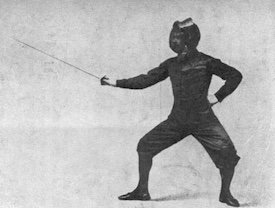I don't think I agree here. As I outlined in my previous post, reality is a subjective interpretation of actuality, thus a subjective experience is necessarily real as a product of the consciousness generating that reality.
I was hoping to avoid the phenomenology discussion as it’s such a minefield/rabbit hole. For most of us, the difference between a real phenomena/event and our experience of it is not noticeable, has little/no impact on our daily lives and therefore is largely irrelevant for most people beyond being just an intellectual curiosity, but recorded sound/music is somewhat of an exception. A large percentage of the world’s population have experienced stereophonic recordings, which relatively obviously demonstrates the difference between an experience and reality, because we experience sound source locations between the speakers/earphones where in reality there obviously is no sound source. Of course, there are numerous other examples but none that are anywhere near as commonly encountered by so many. For instance, “the missing fundamental” is intriguing and the McGurk Effect (
link here) is quite surprising if you haven’t seen it. Additionally, it’s relatively trivial to examine the reality of recorded sound, we can examine the waveform itself, examine it’s spectral content with a spectrogram and compare that to what we’re hearing/experiencing. So unless you believe in magic, for example invisible speakers/earphones which magically exist in a stereophonic system, magical frequencies popping into existence that aren’t being reproduced and can’t be detected/measured and recordings that magically know when you’ve got your eyes shut and magically change their content, then you have to concede that our experience/perception is not “real”. That doesn’t mean to say that “we can’t really have experiences” or that they’re not “real”, just that they don’t necessarily represent reality, they can be illusory/imaginary, not actually exist and with commercial audio recordings there is virtually always at least some element of that. For example, I can have a nightmare about imaginary monsters eating me and experience fear, that experience is real and we could probably confirm that scientifically; my heart rate, respiration, brain activity, hormonal and other responses would be roughly the same or identical as when experiencing fear caused by some real event but of course, this doesn’t indicate that those imaginary monsters were in any way actually real.
This I think gets into the realm of evolutionary psychology as far as the function and utility of music goes. In the phenomenological sense I agree that music is indistinguishable from sound categorically, but the patterns that are embedded in music are a very real artifact of human consciousness in both the individual and collective sense.
I’m not sure exactly what you’re asserting but on the face of it, it doesn’t appear correct. Some music, indeed some entire genres of music do not have “patterns that are embedded”, while many sounds do, most mechanical sounds for example. So, is the sound of say a moving steam train not sound but music and some of the musical compositions of John Cage (and many others) not music but sound? The BBC did some interesting research in the 1950’s/60’s when portable tape machines became available. They went to remote rural locations and isolated tribes (in Africa, Asia and the Amazon, if memory serves) and played them recordings of western music (some Bach, Mozart and popular songs, I believe) and some recorded industrial sounds (a steam train and others). They generally could not identify which were music and which were sound, in fact they encountered one or two isolated tribes who did not employ music in their culture, had no word in their language for music and therefore couldn’t even understand the question. They could easily hear the difference between a recording of a steam train and a piece of Mozart but both were just unrecognisable sound/noise. On a personal level, I had some heated discussions with my mother in the 1970’s because she honestly could not perceive that some recordings of Hendrix were music. The distortion was so heavy she couldn’t recognise it as music, she only experienced it as noise. Obviously there’s a great deal more to all this and we could discuss it at great length, as much of the evolution of western classical music in the C20th is effectively the study of “what is music?”.
Another chart-topper for the "total nonsense" list. …
And it's news to me that music doesn't exist since I work on it every single day …
Classic, you “
work on it every single day” but don’t even know what music is, a “
chart-topper” indeed! If I’m like a 6 year old what would that make you, a fetus, an embryo, not even conceived yet? lol.
G























